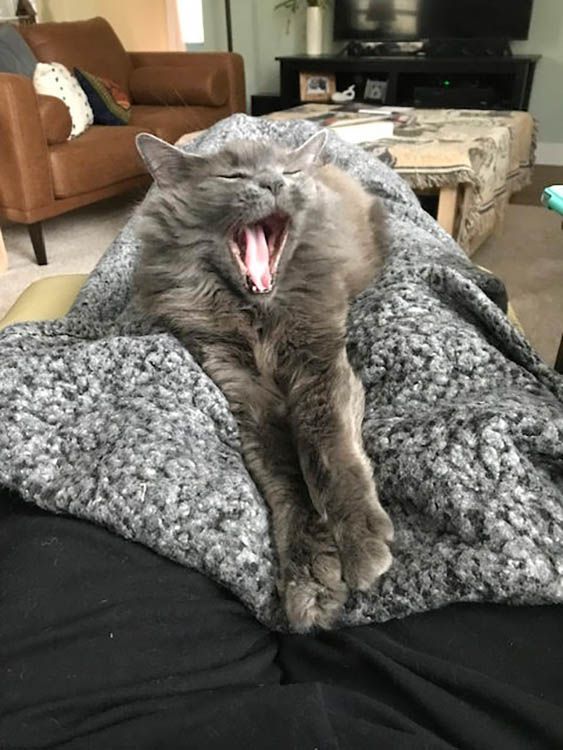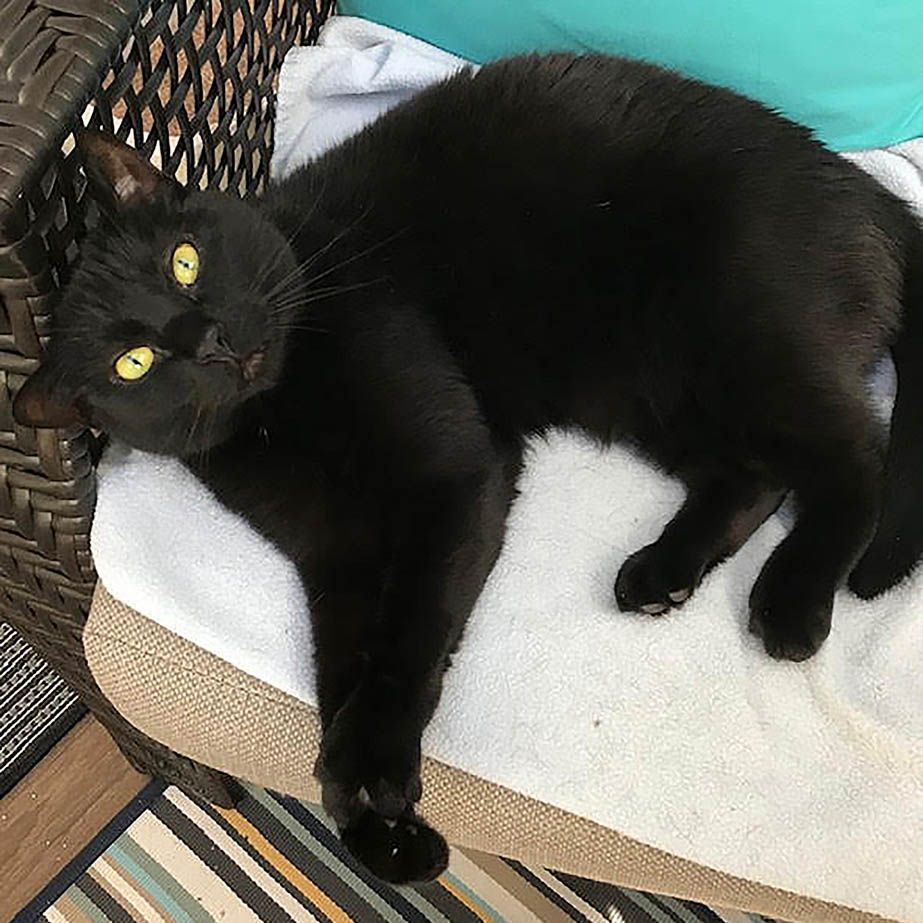
A Coquitlam woman was recently diagnosed with ALS and has her own health and well-being to worry about. One thing she doesn’t want to fret over: What to do with her beloved dog and two cats once she can no longer care for them herself.
Enter My Grandfather’s Cat (MGC). Julie, who asked that her last name be withheld, reached out to the Nova Scotia-based charity at the end of March when she realized she might soon have to find a new caretaker for the pets she calls her “flowers,” cats Tulip and Aster and their canine companion Daisy.
The three are a close-knit fur family, so Julie’s greatest wish is for them to stay together. A big ask, to be sure, trying to get someone to adopt three pets at once. Did we mention they’re all seniors?
“The SPCA is a wonderful organization, but I didn’t want my pets caged and stressed more than was necessary,” says Julie, who heard about MGC from her vet. “I knew, because they are older, that it was unlikely that they would be chosen, together or separately.”

“When she reached out to us, individually rehoming these animals was going to be a challenge, but they’re a bonded family and they’re all nine or older,” says Angela Rafuse, who launched the charity in 2021 after being put in a similar bind. Her grandfather had just died and his elderly cat Mackenzie was suddenly on the brink of spending the rest of her life in a shelter.
Realizing the “spicy, grumpy calico” might not be everyone’s cup of tea, Rafuse took Mackenzie in, and “we became best friends.” But Rafuse wondered: What if she hadn’t been available?
“If it’s not me, what’s going to happen? I designed MGC to be what my family would have needed to rehome Mackenzie comfortably,” she says on the phone from Halifax, where she and the charity she founded are based. “And now we can do this for hundreds of families.”
In its first few years, MGC has found homes for well over 300 pets whose owners were terminally ill or who had died, as well as expanding into donating pet food and supplies for seniors as the cost of pet ownership soars. Though based on the east coast, over 30 of those adoptions were in B.C. and the charity now has volunteers in every province.
“I had this idea that animals could stay with their people as long as possible, then we could find a home for them, and really make sure their next home is the right fit,” says Rafuse.

The Coquitlam “flower family,” though, has been “our most difficult adoption to date,” admits Rafuse.
There’s the fact they come as a unit, they’re older, and whoever adopts them must remain available even if Julie is able to keep them for months or even years.
“She is not even concerned about her short future, only the well-being of her pets,” says Melanie Meckelberg, the local volunteer co-ordinating MGC’s efforts for Julie, who has become mostly wheelchair-bound since she got in touch a couple of months ago.
“It is a tough situation, as she wants to be with them for as long as possible,” says Meckelberg. Julie has help with dog walking for now, but kno ws the time to give them up is coming sooner than later.
That’s why Rafuse has ramped up the campaign to find them homes, expanding from a posting on MGC’s adoption page to an Instagram reel, TikTok and pretty much every other social channel out there.
“We’ve had a few enquiries and there’s been genuine interest,” says Rafuse. “But overall it’s been quite quiet.”

One thing that hasn’t been a challenge for MGC is fundraising. Generous donations have allowed Rafuse, 30, to take on the charitable work full-time after several years in public relations and marketing in Ontario.
“We have so many donors. So many people believe in the work we’re doing,” she says. MGC never charges adoption fees, and “we also don’t have the overhead a traditional shelter would.
“Shelters do such amazing work, but this was a real issue and so many people reached out. Rehoming is needed.”
MGC does vetting of prospective adopters with a rigour that likely exceeds what the SPCA and humane societies put them through. There’s an application similar to what those agencies use, with “a few more questions.”
Then come phone interviews with every applicant and, more important, a conversation with the pets’ owners. “The senior also interviews them and they make the choice of a new home,” says Rafuse.
Rafuse says her philosophy is that it shouldn’t matter “if a cat is 16 years old, has diabetes or three legs or whatever it may be, we will help them.
“I believe wholeheartedly that there is a home for every animal,” she says. “We just have to find them.”
Meckelberg says she is deeply committed to finding a “second forever home” for Tulip, Aster and Daisy.
“It’s literally Judi’s dying wish that her pets are well taken care of, and ideally that they are adopted together,” says Meckelberg. “I am going to do everything I can to place these three together.”
“My greatest hope is to keep this little flower family together,” says Julie, whose symptoms started a few years ago. “They have brought me such joy and love throughout the years, and have kept me going over the last three.”
Anyone interested in adopting the trio is asked to email adopt@mygrandfatherscat.ca . Donations are welcome at mygrandfatherscat.ca .